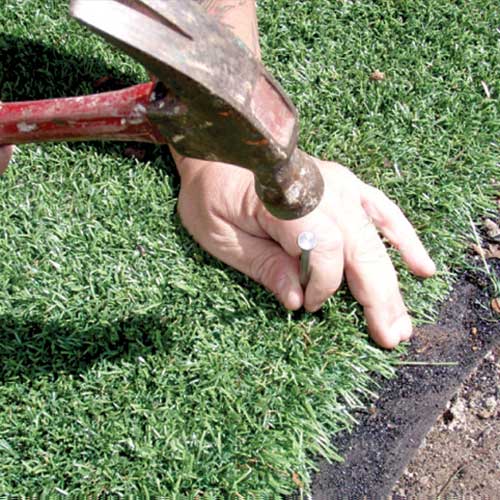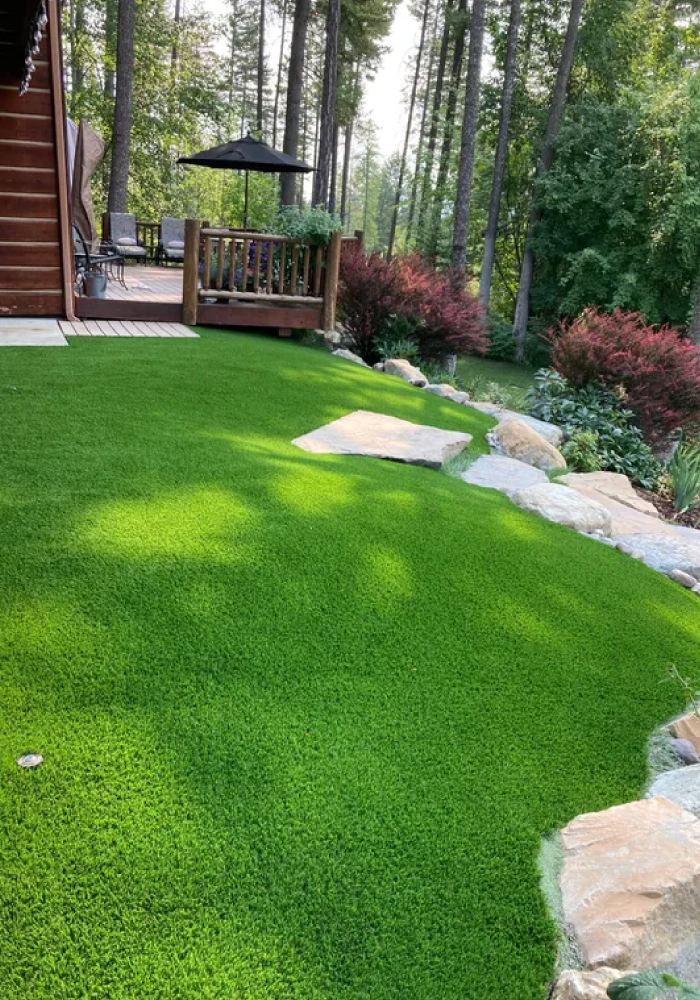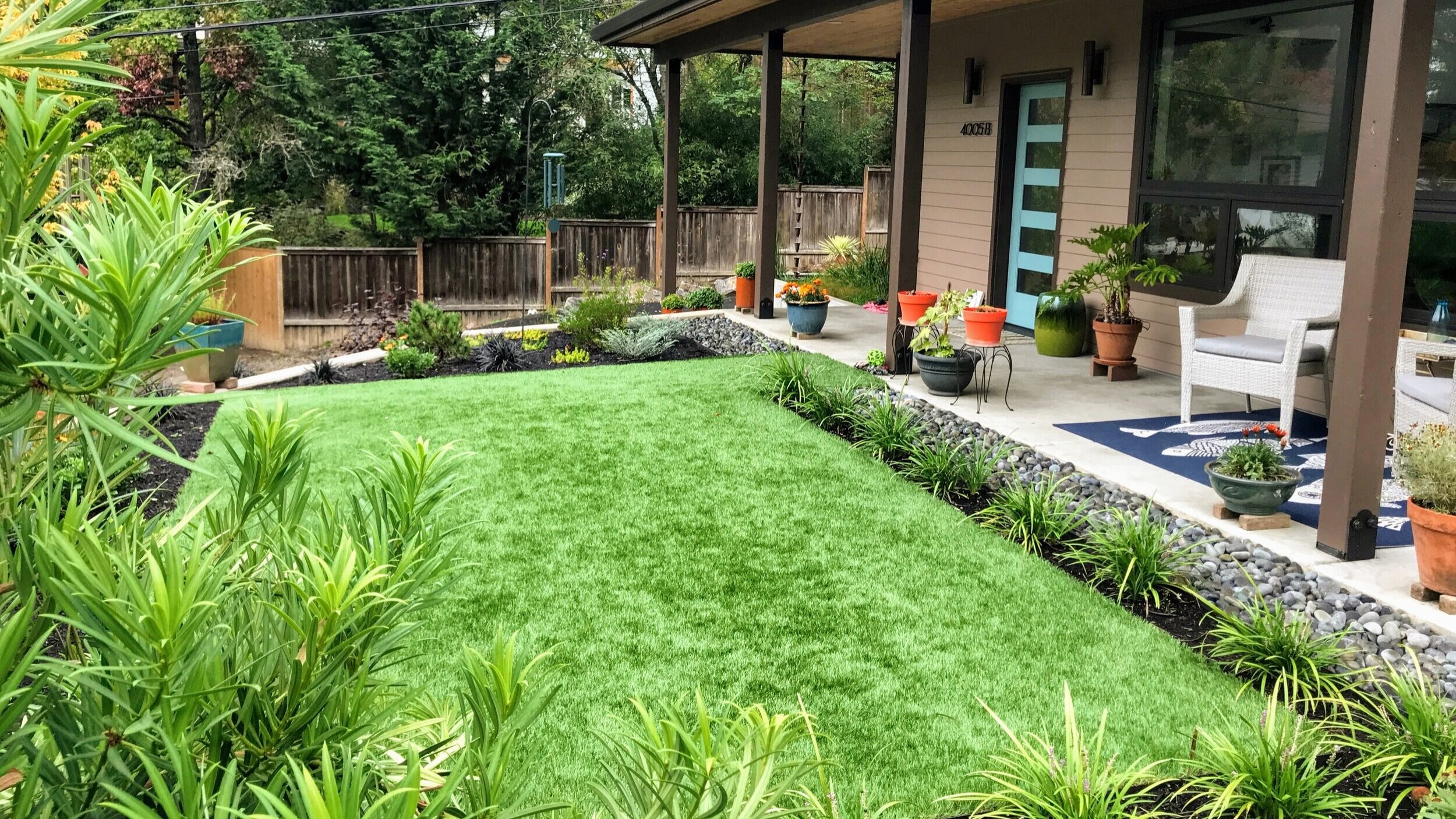Eco-Friendly Arizona Artificial Turf for a Always-Green Lush Green Lawn
Eco-Friendly Arizona Artificial Turf for a Always-Green Lush Green Lawn
Blog Article
Look Into the Environmental Advantages of Opting for Artificial Turf Solutions
The adoption of synthetic grass remedies provides an engaging opportunity to address pressing ecological difficulties. By considerably reducing water usage and lessening the application of harmful chemicals, these alternatives not only promote lasting landscape design but additionally safeguard neighborhood ecological communities. The reduced carbon footprint linked with lowered maintenance activities adds to an extra sustainable approach to land administration. The implications of these benefits extend past mere conservation initiatives, increasing inquiries about their lasting impact on environment preservation and general environmental balance. Checking out these measurements exposes an intricate interaction worth considering.
Water Conservation Advantages
Among one of the most significant advantages of man-made turf is its capacity to conserve water. Traditional lawn lawns call for significant irrigation, especially in areas vulnerable to dry spell or water limitations. In contrast, synthetic grass does not require watering, considerably reducing the general need for water sources. This feature is particularly useful in dry areas where water deficiency is a pressing concern.
By getting rid of the need for normal watering, synthetic grass adds to lasting landscape practices and aids mitigate the environmental effect of too much water intake. Moreover, the conservation of water includes the reduction of drainage, which can result in soil disintegration and river pollution.
In addition, the installation of synthetic grass enables towns and property owners to allot water sources much more efficiently, concentrating on crucial uses such as alcohol consumption water and agriculture. The change towards artificial turf not only promotes liable water usage however also straightens with more comprehensive ecological goals aimed at protecting natural deposits.
As areas increasingly prioritize sustainability, the water preservation benefits of synthetic grass present an engaging situation for its adoption in business and household landscape design jobs.
Lowered Chemical Usage
The change to synthetic grass considerably decreases the reliance on chemical treatments frequently made use of in natural grass upkeep. Standard grass administration typically involves the application of herbicides, fertilizers, and chemicals to advertise growth and control insects. These chemicals can present threats to human wellness, regional wild animals, and the setting, contributing to dirt and water contamination.
In comparison, artificial grass gets rid of the demand for these dangerous materials. By decreasing the launch of artificial substances right into the environment, fabricated grass advertises much healthier dirt and water systems.
Moreover, the lack of chemical overflow linked with synthetic lawn installments aids safeguard regional rivers from pollution, sustaining marine life and keeping biodiversity. Phoenix turf companies. As neighborhoods significantly prioritize lasting methods, choosing synthetic grass provides a feasible option that lines up with ecological conservation goals. Via this shift, residential or commercial property owners can appreciate rich environment-friendly spaces without compromising ecological health and wellness, leading the way for an extra lasting future
Reduced Carbon Impact

Furthermore, the setup of synthetic grass can lead to considerable water preservation. Natural yards need considerable amounts of water for irrigation, which not only includes to the carbon footprint connected with water removal and treatment however likewise pressures local water resources. On this content the other hand, synthetic lawn requires minimal upkeep, needing no watering, therefore substantially minimizing water usage and its linked power expenses.
Furthermore, the longevity of fabricated grass contributes to its decreased carbon influence. With a life-span of approximately 15 years or more, the need for regular substitutes is reduced, causing less waste and reduced power usage in production and getting rid of conventional grass choices. On the whole, synthetic grass offers a lasting alternative for eco aware landscaping.
Environment Conservation
Environment conservation is a vital factor to consider in the argument over landscaping choices, particularly when comparing synthetic grass to all-natural grass. All-natural grass yards frequently call for considerable maintenance, consisting of making use of fertilizers, pesticides, and herbicides, which can negatively influence neighborhood ecological communities. These chemicals can seep into the soil and rivers, damaging indigenous flora and animals and interfering with local environments.
Synthetic lawn gets rid of the demand for dangerous chemicals, thereby protecting nearby wild animals and maintaining the honesty of surrounding ecosystems. The setup of man-made turf can lead to the conversion of previous turf locations right into more biodiverse landscapes, such as pollinator yards or native plant locations, which can support local wildlife.
Ultimately, the shift to man-made grass not only preserves water and reduces maintenance efforts yet additionally promotes a more harmonious partnership in between human tasks and the natural surroundings, advertising environment preservation at the same time.
Long-Term Sustainability
Long-lasting sustainability is a crucial consider evaluating the benefits of synthetic grass over traditional grass yards. One of the most substantial benefits of synthetic turf is its durability; it can last approximately 15-20 years with minimal maintenance, whereas all-natural turf requires regular reseeding and replacement. This long life decreases the need for consistent resources, such as water, plant foods, and chemicals, which are essential for maintaining a healthy and balanced turf yard.
Furthermore, synthetic grass adds to a reduction in carbon exhausts associated with yard care devices. Traditional yards frequently require gas-powered mowers, leaners, and blowers, every one of which contribute to air pollution. Arizona turf. On the other hand, synthetic grass gets rid of the requirement for such devices, promoting a cleaner setting
Moreover, the manufacturing of synthetic grass progressively makes use of recycled products, improving its sustainability account. As manufacturers adopt eco-friendly techniques, the environmental footprint of synthetic grass continues to lessen.

Conclusion
The adoption of fabricated lawn try here options offers substantial ecological advantages, including substantial water conservation, decreased dependence on dangerous chemicals, and a reduced carbon impact. In addition, synthetic grass help in protecting natural habitats by minimizing land disruption and advertising long-lasting sustainability with the use of durable materials. Jointly, these factors underscore the potential of synthetic grass to contribute favorably to ecological wellness and offer a feasible choice to standard landscape design techniques in a significantly resource-conscious globe.
In comparison, man-made turf does not require watering, dramatically reducing the general demand for water sources. By lessening the launch of synthetic substances into the ecological community, man-made grass promotes much healthier soil and water systems.
In addition, the setup of synthetic lawn can result in considerable water preservation. In contrast, artificial turf needs marginal maintenance, needing no watering, thus considerably lowering water usage and its connected power expenses.

Report this page